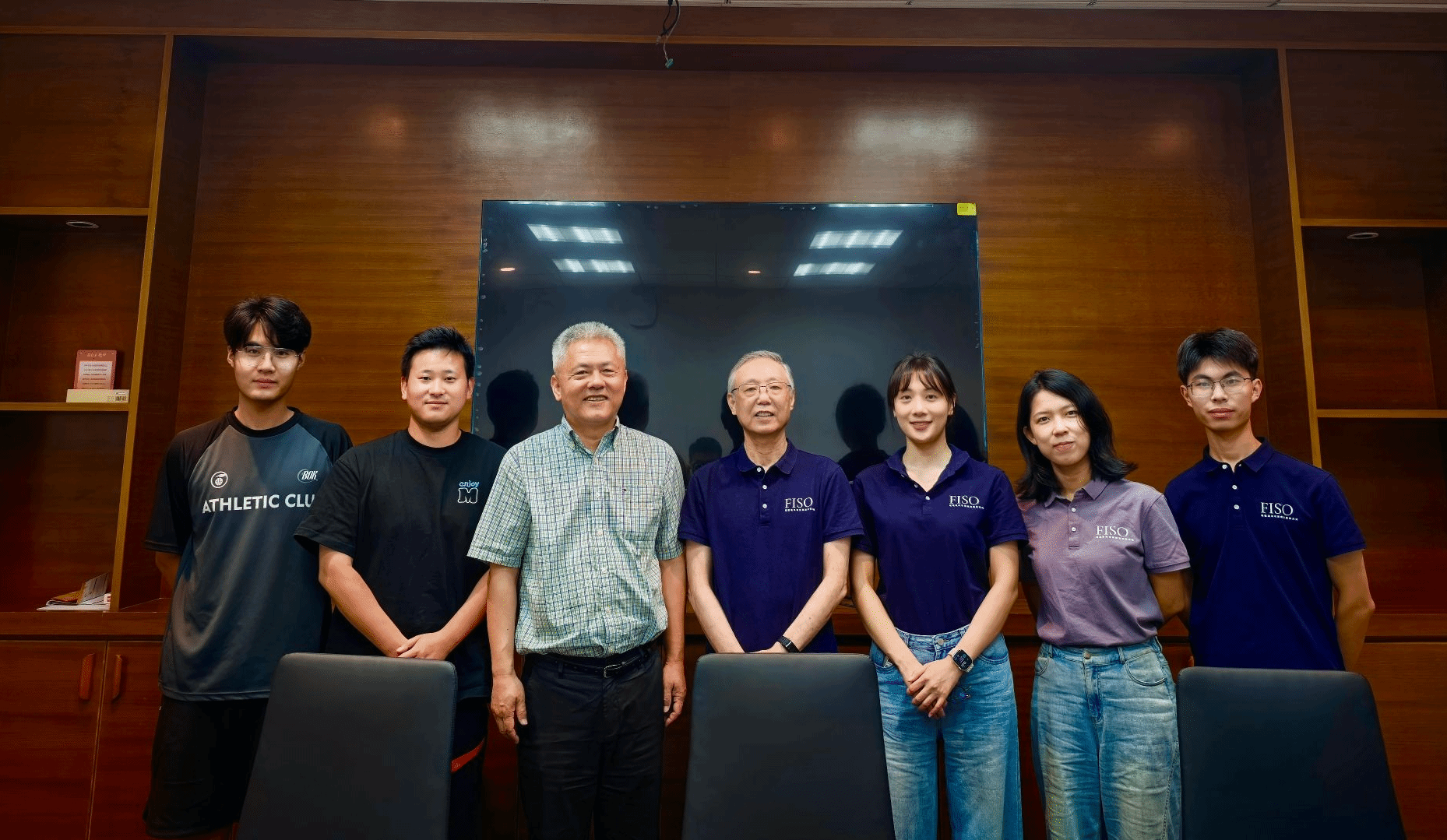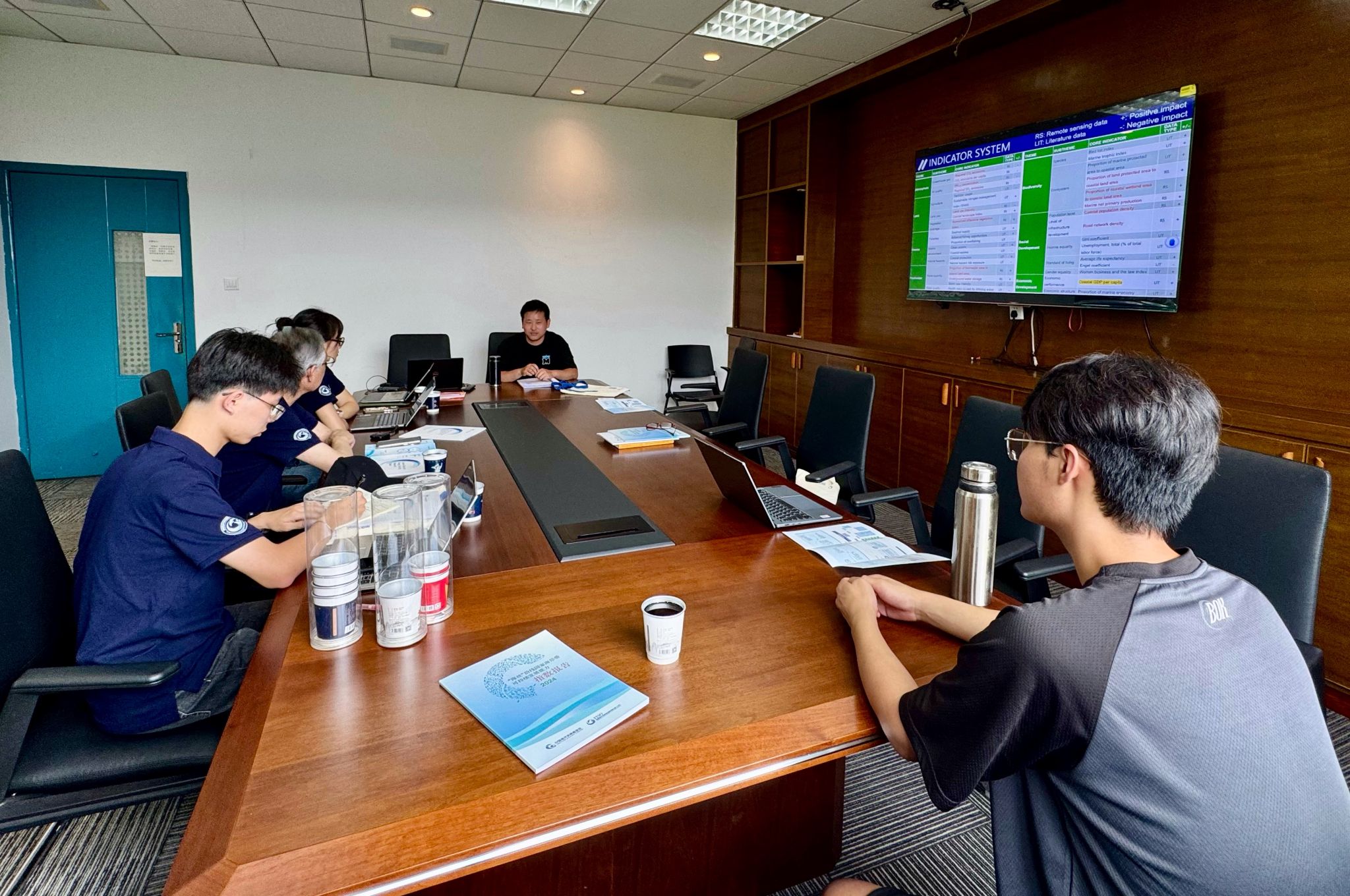2025年7月14日-18日,福建海洋可持续发展研究院(厦门大学)(简称“闽海院”)院长薛雄志教授带领研究团队先后访问西南财经大学与四川大学,围绕《“海丝”沿线国家海岸带可持续发展能力指数报告》(简称“《海丝报告》”)的研究路径拓展与跨学科合作展开交流。闽海院国际事务专员罗舒毓、博士研究生付伊秋、硕士研究生黄鑫泽等参与调研。

与西南财经大学双碳数据团队合影
Group photo with the Carbon Team at SWUFE
闽海院团队首先前往西南财经大学,与该校双碳数据开发及能源安全研究团队(简称“双碳数据团队”)开展专题研讨。会上,双碳数据团队负责人陈建东教授与成员高明博士介绍了团队的研究方向及代表性成果,薛雄志教授则分享了闽海院在海岸带可持续发展领域的长期探索与积累。随后,《海丝报告》执笔人付伊秋重点介绍了报告的核心框架、指标体系及其连续四年发布所带来的全球影响力。双碳数据团队一致认为,该成果在指标设计与区域适用性方面具有重要创新性和实践价值。双方围绕指标融合创新、数据共享机制与成果转化路径等深入探讨,并达成初步合作共识,以期进一步扩大报告的国际影响力与应用价值。

《海丝报告》专题研讨会
Seminar on CISCD
团队随后前往四川大学,与建筑与环境学院城市可持续发展项目组乔雪副研究员、丘杨副教授、卢红雁博士、颜炯博士等开展专题研讨。双方围绕《海丝报告》指标体系的优化与成果转化机制展开头脑风暴,力求在跨学科融合的视角下实现新的突破。研讨聚焦海岸带可持续发展评估中的关键挑战,强调构建具有海洋经济特色的指标维度,并探索推动研究成果向政策制定与实践应用延伸,力促《海丝报告》成为“海丝”沿线国家实现蓝色转型的重要智力支撑。
此次交流推动了《海丝报告》在多学科协同视角下的理论完善与实践拓展。作为面向“海丝”沿线国家的公共产品,报告致力于通过系统评估海岸带可持续发展潜力,推动蓝色经济政策优化与区域协同治理。未来,闽海院将持续凝聚多方智力资源,提升报告的决策支撑力与传播影响力,为全球可持续海洋发展贡献中国方案与研究力量。
From July 14 to 18, 2025, Professor Xue Xiongzhi, Dean of the Fujian Institute for Sustainable Oceans at Xiamen University (FISO), led a research team to Southwestern University of Finance and Economics (SWUFE) and Sichuan University, focusing on advancing the research agenda and interdisciplinary collaboration for the Capacity Index of Sustainable Coastal Development for Countries Along the Maritime Silk Road (CISCD). Participants included Luo Shuyu, International Affairs Specialist at FISO, Fu Yiqiu, Ph.D. student, and Huang Xinze, master's student.
The team first visited SWUFE and had a thematic seminar with the university’s Carbon Data and Energy Security Research Team (hereinafter the “Carbon Team”). During the session, Professor Chen Jiandong and Dr. Gao Ming introduced Carbon Team’s research focus and key outcomes. Professor Xue presented FISO’s long-term dedication in sustainable coastal development. Fu Yiqiu, editing team leader of the CISCD, gave a detailed overview of CISCD’s framework, indicator system, and its growing international impact after four consecutive years of publication.
The Carbon Team recognized CISCD’s innovation in indicator design and regional relevance. Both sides held in-depth discussions on indicator optimizaiton, data-sharing mechanisms, and pathways for policy translation, reaching preliminary consensus on future collaboration to further enhance the index’s global visibility and application value.
The team then visited Sichuan University for a focused exchange with Associate Researcher Qiao Xue, Associate Professor Qiu Yang, Dr. Lu Hongyan, and Dr. Yan Jiong from the Sustainable Urban System Program (SUSP) at the College of Architecture and Environment. The discussion centered on optimizing the CISCD indicator system and strengthening its policy impact, aiming to break new ground through interdisciplinary integration. Key challenges in assessing coastal sustainability were explored, including the importance of developing marine economy-specific dimensions. The two teams also discussed how to better connect academic research with real-world application, envisioning the CISCD as a vital knowledge asset for blue transition across Maritime Silk Road countries.
This visit contributed significantly to the theoretical refinement and practical application of the CISCD through a multidisciplinary lens. As a public good for Maritime Silk Road countries, the index aims to provide a comprehensive assessment of coastal sustainability capacity, support evidence-based blue economy policymaking, and promote regional cooperative governance. FISO will continue to mobilize diverse intellectual resources to enhance CISCD’s strategic value and global influence—offering Chinese experience and research strength to the cause of global sustainable ocean development.


